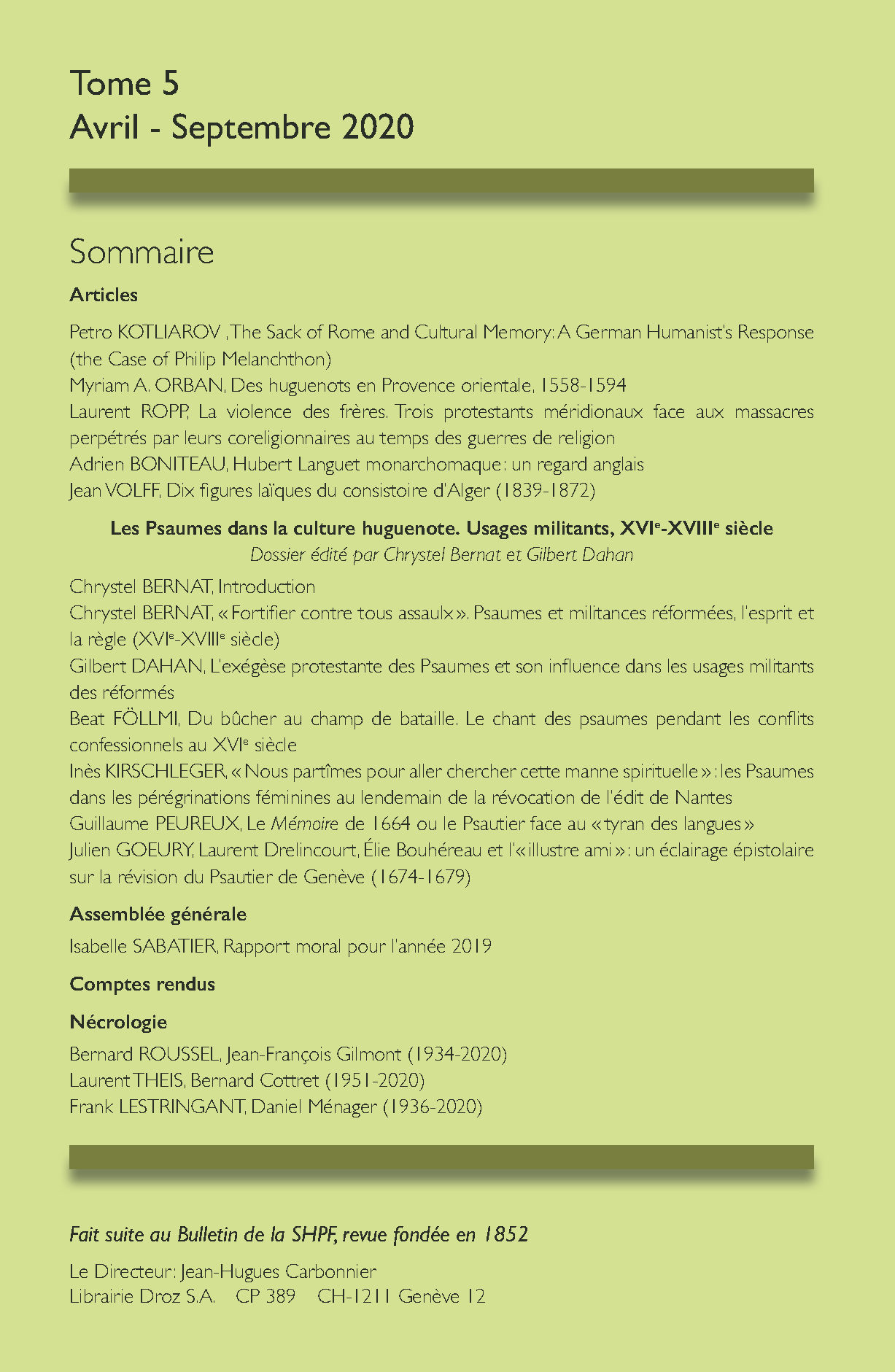« Fortifier contre tous assaulx » Psaumes et militances réformées, l’esprit et la règle (XVIe-XVIIIe siècle)
Abstract
At the crossroads of liturgy, rituals, and hymnology, the Psalms are a historical, multidimensional object surpassing the simple history of religious practices. This religious fact – in the primary sense of knowledge given in experience – comes from the statement of faith, and as such constitutes, in Protestant circles, a socially constructed reference in support of which stand (and, from the start, struggle) the religious communities in France subjected to the dominance of Catholicism. Their song, matrix and identity, but also stigma, accompanies the birth, victories, and vicissitudes of Reformed societies claiming their existence and shaping themselves with the help of the Psalms, to the point of symbolizing, in the eyes of their adversaries, the very first flag and the main banner. Their very essence being a battle song, the Psalms form the base of a fertile social and religious history : the biblical resource and declarative statement of a religious minority struggling to survive, using the Psalms as a form of defence and celebration of faith. Drawing on Reformation texts, synodal rulings, and royal legislation that attempt to regulate their use, this study explores the heuristic value of the Psalms and seeks to identify the reason for their central place within French Calvinism. A cornerstone of Reformed piety and at the same time a method of Huguenot insubordination, the Psalms seem to be a major component of Protestant militancy, whose motifs and variations, principles and rules, are examined in this work. The aim is to understand how the singing of the Psalms became the melodic mode of Reformed religious commitment, a landmark communally constituted and confessionally divisive in early modern Catholic France.
How to Cite
More Citation Formats
Issue
Most read articles by the same author(s)
- Chrystel Bernat, Introduction, Revue d'histoire du protestantisme: Vol. 5 n° 2-3 (2020):
